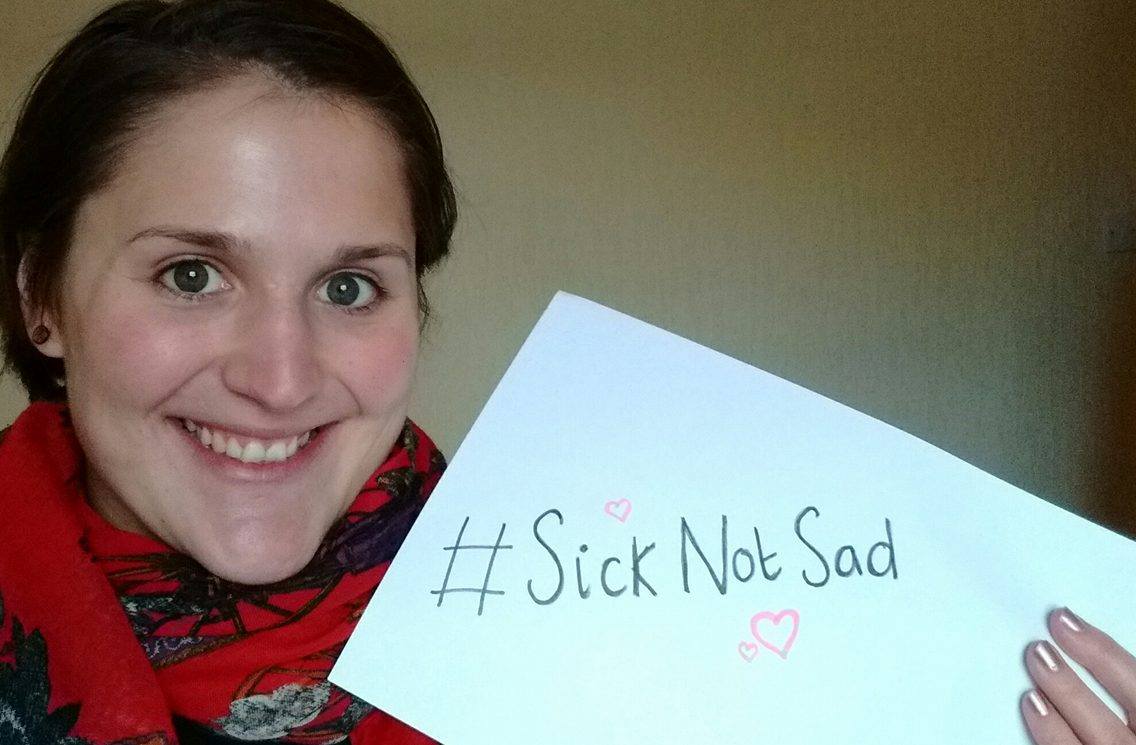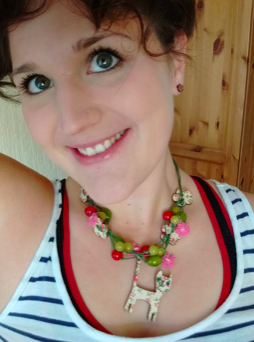 My name is Zoe. I’m 24, a PhD student at Cardiff School of Social Sciences. Here is the story of my struggles with mental health, specifically eating disorders.
My name is Zoe. I’m 24, a PhD student at Cardiff School of Social Sciences. Here is the story of my struggles with mental health, specifically eating disorders.
I have always had a negative perception of myself. I remember sitting on my bed when I was about 6, wishing to be someone else, wishing that I had a device that could get rid of my stomach. Though this was not necessarily an eating disorder, it played a significant role in creating low self-esteem and body hate. I believe it contributed to emotions which made me susceptible to eating disorders. Every year I would wish to be thin. Every year I became upset at my body that just wouldn’t change.
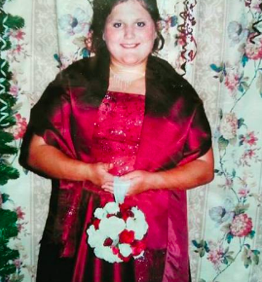 But my first actual experience of an eating disorder – Bulimia – came when I was about 14/15. It’s interesting, because I don’t remember a precise moment that I decided to become bulimic. Being an overweight and alternative gothic teenager, I was not exactly invisible when it came to bullying. So, that’s one reason perhaps why it started. But I also remember feeling very alone at home, with unlimited food available to me. Food made me happy (and of course it’s tasty!), so every
But my first actual experience of an eating disorder – Bulimia – came when I was about 14/15. It’s interesting, because I don’t remember a precise moment that I decided to become bulimic. Being an overweight and alternative gothic teenager, I was not exactly invisible when it came to bullying. So, that’s one reason perhaps why it started. But I also remember feeling very alone at home, with unlimited food available to me. Food made me happy (and of course it’s tasty!), so every 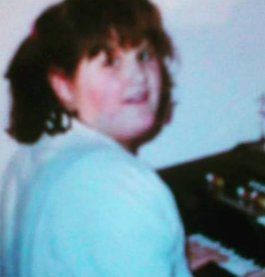 day after school I would come home and eat. One night, I became very excitable and started binging. The feeling was an immense high; however, once the binging happened I felt that I had to do something about it. And that’s how it started. The overwhelming guilt of what I ate on this one occasion, but no real decision to do it. Then it happened the next night and the next, until I found myself in an inescapable pattern. It was a terrible experience which lasted for a four to five months, but I told no one. I recovered alone.
day after school I would come home and eat. One night, I became very excitable and started binging. The feeling was an immense high; however, once the binging happened I felt that I had to do something about it. And that’s how it started. The overwhelming guilt of what I ate on this one occasion, but no real decision to do it. Then it happened the next night and the next, until I found myself in an inescapable pattern. It was a terrible experience which lasted for a four to five months, but I told no one. I recovered alone.
However, when recovered from an eating disorder the negative thoughts around my body did not simply disappear. I never learned to like myself. I always wanted to change, and so the pressures of wanting to be seen as ‘pretty’ led to my second experience of an eating disorder; EDNOS (Eating Disorder Not Otherwise Specified) with anorexic tendencies. It really is very difficult to pin-point precisely what the cause of the EDNOS was. Still experiencing depressive thoughts around my body, I decided to join to gym to get healthier. But I was also experiencing domestic abuse. My low self-esteem from a young age became the perfect opportunity for a very manipulative and fearful person to enter my life.
Changes to my body began as I intended to lose weight for sport related issues, to fit into a weight category for kickboxing. However, having a very unhealthy view of myself I couldn’t get enough of the weight loss. I restricted, I exercised excessively. I was addicted. I was scared of food. The utter panic was unbearable. But on reflection, and now being aware of my abusive relationship, I think that the EDNOS was a way to battle the pains of the relationship. When you are in an abusive relationship, they sever the ties to your friends and family. I had no one. The one person I had terrified me. I felt so lost.
During the EDNOS/anorexic behaviours I did receive counselling, though I was never truly honest with my feelings due to the secretive relationship, but also because I never felt ill enough. My BMI would no doubt have placed me on the ‘healthy’ category, and I was clearly not anorexic. Therefore in my head my experiences weren’t ‘that bad’.
Luckily the Christmas period interrupted my routines. I was separated from the abusive partner for a while, and I was being observed more by family. I gained some weight and continued life in a healthier manner, but still in silence. No one really knew the extent of my behaviours, or my experiences. Altogether the EDNOS lasted for around five months.
When the relationship ended a few months later, however, I became bulimic again. Interestingly, this experience was not due to what my body looked like. Really, it was all due to stress and loneliness. When the only person you feel connected with is gone (even if they are abusive), you feel helpless. I restricted, then binged and purged. Again, however, I did not receive any help for this recovery. Again, I did not feel ill enough because it wasn’t anorexia. My sense of self-worth was non-existent.
The bulimia lasted for about 4 or 5 months. As the months went on I did manage to stop the bulimia, and after a while I actually felt happy. I was eating well and had a healthy approach to life. Unfortunately, this period of happiness and health did not last too long.
When I was 22 an incident happened with the abusive ex-partner, and because I feared for my safety I had to tell family about his behaviour. However, when I realised that the relationship was in fact abusive (I did not realise at the time), I turned to food again. I only made myself sick once or twice during this very low depressive state (lasted for about 6 months to a year on and off), I became dependent on food and I gained weight. I binged, led by my overwhelming emotions. The weight gain made me feel pathetic. I thought, “If I can’t control what I eat, how can I control anything else in life?”. It was a very dark period. I just wanted to die.
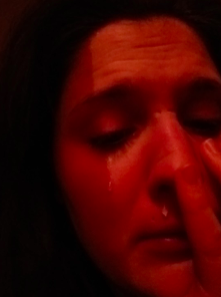 Constant anxiety, depression, fear. If I smelt the same deodorant he wore I would feel as thought my body was tearing into pieces. I tried to communicate my feelings, to tell people about him so I could feel safer. The replies were not really that useful for me; “Let’s be realistic; he’s probably not going to see you again”. “It’ll be fine”, or my favourite quote from my GP; “Cheer up. You can’t let him win”. WELL, thanks for that advice.
Constant anxiety, depression, fear. If I smelt the same deodorant he wore I would feel as thought my body was tearing into pieces. I tried to communicate my feelings, to tell people about him so I could feel safer. The replies were not really that useful for me; “Let’s be realistic; he’s probably not going to see you again”. “It’ll be fine”, or my favourite quote from my GP; “Cheer up. You can’t let him win”. WELL, thanks for that advice.
People tried to be helpful. People tried to make me happy. “Just be positive”. “Tomorrow is a new day”. But the thing about mental illnesses is that they hurt. They are hurting you every day, and it’s not just something you can click ‘off’ or ‘on’.
I received two to three months of counselling about the abusive behaviours and the low self-esteem around my body which would tend to trigger the eating disorders I experienced. And now, after so many struggles and accepting my experience as legitimate experiences that deserve help, I write this as a survivor. I can smile again.
To truly recover took a long time. I had to learn to like myself. I had to learn that I am a human being who deserves respect, and it was so incredibly hard.
I think a key aspect to my recovery was letting go: letting go of old clothes and old goals. That old pair of jeans I once fit into shouldn’t be the definition of my self-worth. Throwing them away, accepting my new body in a positive way – that was a big step. New goals are also reflected in my new sporting hobbies. Rather than compete with anything controlled by weight categories, I started American Football and strength starting. For me there is nothing more empowering than being celebrated for my body which I once despised. I use my body to take down players, to hit players, to stop players. I absolutely love it.
I think what my story really illustrates is that there’s no ‘right’ way to have an eating disorder. You deserve help regardless of which eating disorder you are experiencing, regardless of your weight, and regardless of how long you’ve suffered. You deserve to be happy.
Importantly, opening up and talking about my experiences was my saviour. You CANNOT win the battle against eating disorders – or other mental health issues – alone. There’s comfort in the eating disorder bubble, and breaking out of that bubble at the time seems very painful. But each day you address it, you are winning. You are still here, you are winning. Keep going.
I am strong enough to feel confident most days, but I still live with anxieties and remnants of body dysmorphia. Sometimes it takes me hours to get out of the house if my clothes don’t ‘feel right’. Sometimes (well, most of the time) I doubt my abilities as a football player, as an academic, as a friend. My heart and my head had been hurt and twisted since I was a child, I often don’t know how to approach situations and reflect on them rationally. But the more I talk to people about my experiences, the more I feel like I can help others.
I’ve recently become a Young Ambassador for Beat, also running The CEDAS Project (Cardiff, Eating Disorders Are Serious). I don’t want anyone to have to experience what I have been through, and I’m hoping that the more I talk about my experiences, the more likely that the stigma around mental illnesses will be addressed.

If you are suffering with any mental illness, please get help. You are not alone.